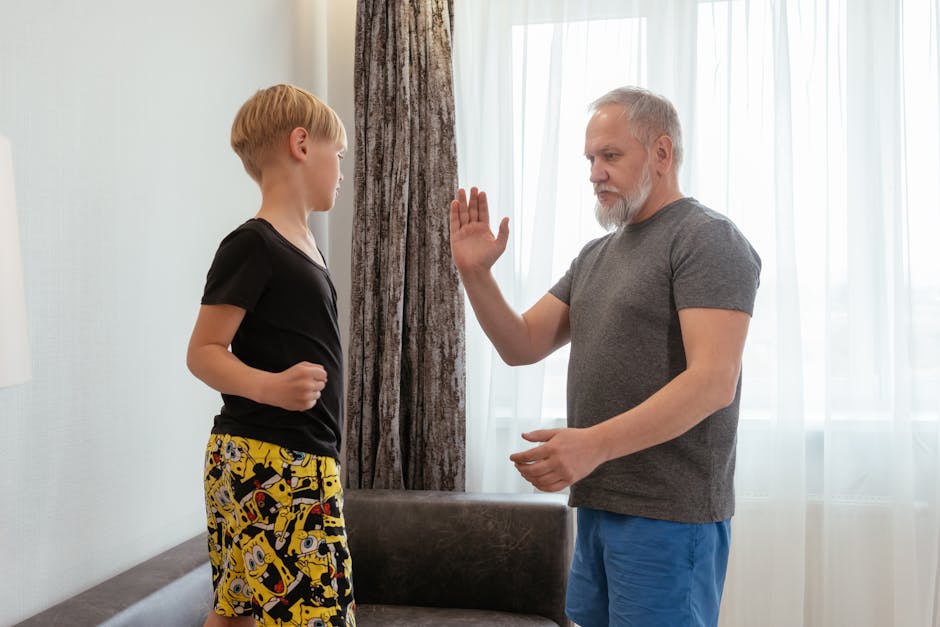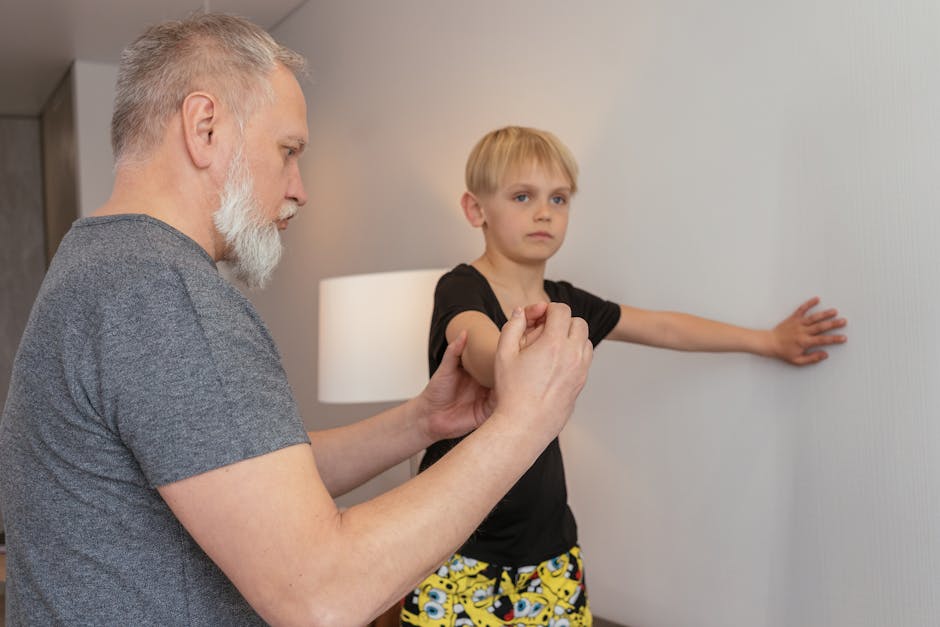Building a strong foundation of respect in your relationship is the cornerstone of a healthy and lasting partnership. Without respect, even the most passionate love can falter under the weight of misunderstandings, resentment, and conflict. But when respect is present, it acts as the glue that holds everything together, fostering trust, communication, and emotional security. If you’re ready to strengthen your relationship and create a bond that stands the test of time, keep reading—this guide is for you.
Key Takeaways
- Respect is essential for a healthy and thriving relationship.
- Trust, honesty, and open communication are key to fostering mutual respect.
- Emotional support, shared values, and equality create a balanced partnership.
- Healthy conflict resolution and quality time strengthen your connection.
Importance of Respect in a Relationship
Definition of Respect in a Relationship
Respect in a relationship means valuing your partner’s thoughts, feelings, and individuality. It’s about treating each other as equals and honoring boundaries. Respect doesn’t mean agreeing on everything—it means appreciating differences and showing kindness, even during disagreements.
Why Respect is the Foundation of a Healthy Partnership
Without respect, love can feel hollow. Respect builds trust, encourages open communication, and creates a safe space where both partners can thrive. It’s the foundation that allows love to grow deeper over time.
Long-Term Benefits of Mutual Respect
When respect is mutual, relationships flourish. Partners feel valued, conflicts are resolved constructively, and emotional intimacy deepens. Over time, this creates a partnership that feels secure and fulfilling.

Building Trust and Honesty
The Role of Honesty in Fostering Respect
Honesty is the bedrock of respect. When you’re truthful with your partner, you show that you value their trust. Lies, even small ones, can chip away at the foundation of your relationship.
How Trust Strengthens Emotional Security
Trust creates emotional safety. When you trust your partner, you feel secure enough to be vulnerable. This security allows both of you to grow individually and as a couple.
Steps to Rebuild Trust After It Has Been Broken
Rebuilding trust takes time and effort. Start by acknowledging mistakes and taking responsibility. Open communication and consistent actions are key to regaining your partner’s confidence. For more insights, check out this guide on setting and maintaining healthy boundaries.

Open Communication
Creating a Safe Space for Dialogue
A relationship thrives when both partners feel safe to express themselves. Avoid judgment and criticism, and instead, listen with empathy.
Expressing Feelings and Needs Effectively
Use “I” statements to share your feelings without blaming your partner. For example, say, “I feel hurt when…” instead of “You always…” This approach fosters understanding and respect.
Active Listening as a Tool for Mutual Understanding
Active listening means truly hearing your partner without interrupting. It shows that you value their perspective, even if you don’t agree.

Emotional Support and Intimacy
Importance of Feeling Valued and Understood
Feeling valued is essential for emotional intimacy. Simple gestures like saying “thank you” or acknowledging your partner’s efforts can go a long way.
Sharing Vulnerabilities to Deepen Connection
Opening up about your fears, dreams, and insecurities can strengthen your bond. Vulnerability fosters trust and shows that you’re willing to let your partner see the real you.
Balancing Independence and Interdependence
While it’s important to support each other, maintaining your individuality is equally crucial. A healthy relationship strikes a balance between independence and interdependence.

Shared Values and Goals
Aligning on Core Values for a Unified Vision
Shared values act as a compass for your relationship. Whether it’s family, career, or personal growth, aligning on what matters most helps you move forward together.
Setting and Achieving Goals Together
Working towards common goals strengthens your partnership. Celebrate small victories along the way to keep the momentum going.
Navigating Differences in Priorities
Differences are inevitable, but they don’t have to be divisive. Approach them with an open mind and a willingness to compromise. Learn more about fostering healthy relationships here.

Equality and Balance in the Relationship
Ensuring Both Partners Feel Heard and Valued
Equality means that both partners have an equal say in decisions. It’s about creating a dynamic where both voices matter.
Maintaining a Balanced Dynamic of Give and Take
A healthy relationship isn’t one-sided. Both partners should contribute equally, whether it’s emotional support, household responsibilities, or financial matters.
Addressing Power Imbalances Constructively
If one partner holds more power, it can lead to resentment. Address imbalances by having honest conversations and finding ways to share responsibilities.

Healthy Conflict Resolution
Approaching Disagreements with Respect
Disagreements are normal, but how you handle them matters. Avoid name-calling or blaming, and focus on finding solutions together.
Techniques for Constructive Problem-Solving
Use techniques like taking a timeout to cool off or writing down your thoughts before discussing them. These strategies can prevent arguments from escalating.
Letting Go of Past Grievances to Move Forward
Holding onto grudges can poison your relationship. Forgiveness doesn’t mean forgetting—it means choosing to move forward without resentment.

Quality Time and Positive Experiences
Importance of Spending Meaningful Time Together
Quality time strengthens your bond. Whether it’s a date night or a simple walk, being present with each other is what matters.
Creating Joyful Moments Through Laughter and Fun
Laughter is the best medicine for a relationship. Share jokes, watch a comedy, or reminisce about funny memories to keep the spark alive.
Strengthening Bonds Through Shared Activities
Engage in activities you both enjoy, like cooking, hiking, or volunteering. Shared experiences create lasting memories and deepen your connection.

Flexibility and Adaptability
Navigating Life’s Challenges as a Team
Life is full of ups and downs. Facing challenges together strengthens your partnership and shows that you’re in it for the long haul.
Adapting to Changes in the Relationship
As your relationship evolves, so will your needs and priorities. Embrace change as an opportunity to grow together.
Reinforcing Commitment Through Resilience
Resilience is the ability to bounce back from difficulties. It’s a testament to your commitment and love for each other.
Forgiveness and Moving Forward
The Role of Forgiveness in Maintaining Respect
Forgiveness is a gift you give to yourself and your partner. It’s about letting go of anger and choosing to focus on the present.
Letting Go of Resentment for Emotional Growth
Resentment can weigh you down. By letting it go, you create space for emotional healing and growth.
Building a Stronger Future Together
Every relationship has its challenges, but with respect, trust, and love, you can overcome anything. Focus on building a future that reflects your shared dreams and values.
For more tips on nurturing healthy relationships, visit this resource.

Building a strong foundation of respect in your relationship isn’t a one-time effort—it’s an ongoing journey. By prioritizing trust, communication, and emotional support, you can create a partnership that not only survives but thrives. Remember, respect is the key that unlocks the door to a fulfilling and lasting relationship.
FAQ: Building a Strong Foundation of Respect in Your Relationship – Your Guide to a Healthier Bond
Why is respect important in a relationship?
Respect is the cornerstone of any healthy relationship. It fosters trust, understanding, and emotional safety, allowing both partners to feel valued and heard. Without respect, conflicts can escalate, and the bond between partners may weaken over time.
How can I show respect to my partner on a daily basis?
You can show respect by actively listening, valuing their opinions, and being considerate of their feelings and boundaries. Small gestures, like expressing gratitude or acknowledging their efforts, also go a long way in demonstrating respect.
What are the signs of a respectful relationship?
A respectful relationship is characterized by open communication, mutual support, and the absence of belittling or controlling behavior. Both partners feel safe to express themselves and are treated as equals in decision-making and problem-solving.
How do I address disrespect in my relationship?
Start by calmly discussing your feelings with your partner and providing specific examples of disrespectful behavior. Focus on how it affects you and work together to establish boundaries and solutions. If needed, consider seeking guidance from a counselor or therapist.
Can respect be rebuilt after it’s been lost in a relationship?
Yes, respect can be rebuilt with effort and commitment from both partners. It requires honest communication, accountability, and a willingness to change harmful behaviors. Rebuilding respect takes time, but it’s possible if both individuals are dedicated to improving the relationship.
How does mutual respect impact conflict resolution?
Mutual respect allows conflicts to be addressed constructively rather than destructively. When both partners respect each other, they are more likely to listen, compromise, and work together to find solutions without resorting to blame or hostility.
What role does self-respect play in a healthy relationship?
Self-respect is crucial because it sets the standard for how you expect to be treated by others. When you value yourself, you’re more likely to establish healthy boundaries and seek relationships where mutual respect is a priority.
How can couples cultivate respect over time?
Couples can cultivate respect by continuously communicating openly, supporting each other’s growth, and showing appreciation for one another. Regularly revisiting shared goals and values can also help maintain a strong foundation of respect.
What are some common behaviors that undermine respect in a relationship?
Behaviors like dismissing your partner’s feelings, interrupting, name-calling, or ignoring their needs can undermine respect. Over time, these actions can erode trust and create resentment, making it essential to address them promptly.
How can respect enhance intimacy in a relationship?
Respect creates a safe and trusting environment, which is essential for emotional and physical intimacy. When partners feel valued and understood, they are more likely to open up and connect on a deeper level, strengthening their bond.



